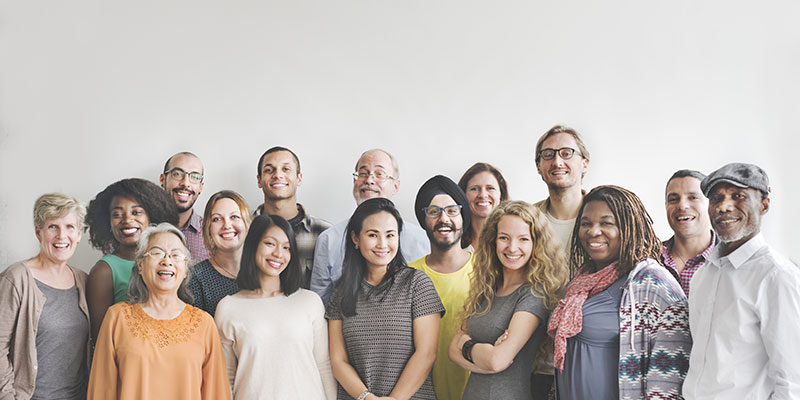Covid. A crisis. Is it also an opportunity?
This is, I promise you, a positive blog, with hope, opportunities and two very practical actions that could make a huge difference to your fundraising. Huge.
But first a check in on the current situation in the outside world. What follows is solely my own perspective. It is not necessarily the perspective either of the Chartered Institute of Fundraising nor others involved in the project which this blog is about.
If you already think you know the bad news, skip to the next photo.
As I write, on 15th November, we are in the second wave. Yesterday the number of new cases recorded was 33,470. On October 14 th it was 12,870. On September 14th it was 2,621. So, things are getting worse.
There is no way that we are coming out of lockdown on December 2nd . It would be quite mad. I am not a clairvoyant, but I would suggest we are going to be in lockdown for months not weeks. And, when we do come out there will still be the virus. The ‘R’ number will go up, and there will be further lockdowns, possibly local ones, as last time. And last time we were told at very short notice. Even if we have a week’s notice, events that take weeks or months of planning could suddenly be cancelled. As well as mass participation events, such as the various marathons.
Shops. If they are part of a charity’s trading company they will be working on very tight margins. When they are closed the costs remain the same, but income goes down. So profit goes down, or disappears. And there are strict rules about a charity subsidising its trading company.
So, all hope focuses on finding a vaccine. There was jubilation when Pfizer and BioNTech announced that their coronavirus vaccine may be more than 90 per cent effective. Airline and holiday company shares surged on the optimistic news.
I would say three things.
1. There is no certainty that there will be a vaccine, in the short to medium term, let alone one that most people’s bodies will accept and which provides immunity for any length of time.
2. Professor Jonathan Van-Tam (my favourite expert) said “we don’t yet know”; when life can get back to normal or when coronavirus restrictions can start to be lifted. “Frankly, we’re in the middle of the second wave, and I don’t see the vaccine making any difference for the wave we are now in. I’m hopeful that it may prevent future waves, but this one we have to battle through to the end without a vaccine.”
3. There is also at least one big practical hurdle to overcome.
Speaking on Radio 4’s Today programme yesterday, Health Secretary Matt Hancock spoke of the “mammoth logistical operation” of transporting the Pfizer/BioNTech vaccine from its point of manufacture to the arm of the patient. That’s because it cannot be removed from a temperature of -70C (-94F) more than four times. And that temperature is much lower than what the average home freezer can reach.
So, I wouldn’t hold your breath.
Certainly, I hope for the best. But I believe we should prepare for the worst.
Now, the good news.
Think about the supporters on your database. All of them. Your real supporters. They won’t let you down.
This is what the Chartered Institute of Fundraising’s Supporter Experience Special Interest Group (in future I’ll use ‘we’) has done. Since July we have been actively working on a project which was launched on Wednesday 11th November, with the title: ‘Fundraising in the time of Covid. How the supporter experience can help you navigate the pandemic’.
We have produced an online booklet, here. In it you will find six principles with up to six actions beneath each of them. Actions which are concrete, practical and very do-able. A veritable ‘How to’ guide at a critical time, entirely free, for you and your colleagues. Together with 12 powerful case studies, related to the principles, and which show extraordinary success.
We are also organising a free webinar on Wednesday 25th November, which you can sign up to here, right now. The presenters will tell even more stories of their own organisation’s success in fundraising in this terrible time.
In a bit, I’ll talk about the content. But first let me explain the context.
It isn’t all doom and gloom, even though it might feel like that for fundraisers and fundraising directors.
The media tell us about tens of thousands of people being made redundant, and then another 100,000 a few days later. Businesses are going under. CEOs, FDs and SMTs of charities are focused on how to keep the charity solvent: how to decide which services to cut and which to maintain. They are not, at the moment, thinking about the possibilities of more successful fundraising. Things that fundraisers could do to help mitigate the crisis.
However, a huge number, maybe most, of your supporters are not worse off. They have steady jobs or fixed pensions. They are actually better off. No foreign holidays. No theatre or cinema. No meals out. You can tap into this money.
Why?
Because people want to give. They need to give.
Remember, fundraising is not about persuading people to give to your charity. Fundraising is about inspiring people to make a difference to the world by giving to your cause, and feeling great about it.
Right now, your supporters want to make a difference.
You must give them the opportunity to do so. If you are in danger of closing or radically reducing your services, surely you have to engage with all your supporters, and give them the opportunity to make a difference? I would be livid if one of my own charities didn’t allow me to help.
There is an opportunity for fundraisers to harness this rise in altruism – providing we deliver an exceptional supporter experience that reinforces each and every supporter’s decision to help. And, if we get it right, it will make a lasting difference.
We know from the Commission on the Donor Experience that people who have a good supporter experience are more likely to give, give more and recommend others do the same. Now more than ever, delivering an exceptional supporter experience is the key to building long term relationships. Our new touchstones should not be just ‘satisfied’ but needed, valued and empowered to effect change.
By focusing on their supporters, and the experience that they are giving them, many charities are seeing almost unbelievable results. Not maintaining the same income as in normal times. Not even seeing a 10% increase, but seeing 100% or 200% increases.
GOSH – 20% fewer supporters cancelled their regular gift in the period April to August than in the same period last year.
Asthma UK – A Wikipedia-style ask introduced for the first time has become their fourth biggest income generator.
British Red Cross – Their Beirut email being their best performing in the last few years.
Let me come pack to our project.
‘Fundraising in the time of Covid. How the supporter experience can help you navigate the pandemic’.
We are not suggesting we have the answer to all the challenges charities are facing.
And neither are we suggesting there is one right answer to delivering supporter experience. But through the six principles and suggested actions provided in this guidance we hope to help fundraisers do their part.
Our principles cover a very broad spectrum. Principle 3). Your supporters still believe in your mission – and they want to give. Principle 5). Invest in fundraisers.
Let me give you six examples within the principles.
1. Enhancing the supporter experience should be an aspiration of the whole organisation – a mindset to see supporters as partners in your mission, rather than people to fundraise from. So be ready to challenge internal assumptions among staff or trustees, that now is not the time to ask supporters to give or fundraise. Now is the time.
2. Carry on talking to your supporters – they expect to hear from you, and there are opportunities to create closer relationships than ever before. Your organisation’s need has just got bigger because of Covid. You may think that supporters are only focusing on themselves, but the pandemic has heightened their desire to do good, because giving makes us all feel good.
3. Keep your current schedule of communications under constant review. The world is rapidly changing so you need to stay relevant. As needed, re-imagine your communications considering the experience you want your supporters to have, right now, given the uncertainty about where Covid is going.
4. Show your supporters that you care about them.
Recognise in your communications that some supporters may not be able to give as much as they would like, because of their changing economic situation. Remind them what their past support has made happen. Offer supporters who donate regularly a payment holiday. Many will appreciate the gesture even if they don’t take it up. It shows you are thinking about them. They have been there for you: now you be there for them.
5. In principle, and as far as you can, now is the time to increase investment in fundraising. If you cut back, then the money won’t come in. Investing in fundraising isn’t just about spending more, but sharply prioritising to invest smarter.
6. Who are your supporters? Are you thinking about all of them? Consider every person on your database(s) as a potential partner in the mission. Some won’t be.
Many will, even if you haven’t thought about them in this way before.
For example, can you send all intended participants in a cancelled event an emergency appeal, carefully crafted to give them a good experience? Engage with your agencies, suppliers etc. Who else? Think. Be creative. Aren’t they partners in your mission? So ask them to give. I have done my own research for this blog and found that almost none of the above have been asked by their clients for financial support.
Spend a few minutes skimming through the booklet. Spend 90 minutes at the webinar. If you’re not inspired and take away actions to do tomorrow I personally will give you your money back.
(Of course, they’re both free.)
Giles Pegram CBE
© Giles Pegram CBE
15th November 2020






